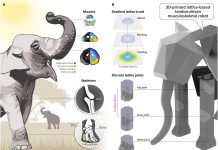
A groundbreaking study has introduced an artificial intelligence (AI) model, named IRON (Integrated Radiogenomics for Ovarian Neoadjuvant therapy), capable of accurately predicting the effectiveness of therapy in ovarian cancer patients.
This significant advancement offers hope in improving treatment strategies and outcomes for thousands of women affected by this disease.
Pioneering AI Approach in Cancer Treatment
The study, led by Professor Evis Sala and published in Nature Communications, marks a significant leap in cancer treatment.
The IRON model integrates a range of clinical features, including circulating tumor DNA from liquid biopsies, patient demographics, tumor markers, and CT scan images.
By analyzing this comprehensive dataset, the AI tool can predict the success of therapy with an impressive 80% accuracy, far surpassing the 50% accuracy of current clinical methods.
Study Insights and Implications
The research, conducted on 134 high-grade ovarian cancer patients, revealed the potential of AI in personalizing and enhancing treatment strategies.
Ovarian cancer, often diagnosed in advanced stages due to subtle early symptoms, poses a significant challenge in treatment, particularly in high-grade serous ovarian carcinoma cases.
The heterogeneity of this cancer type has hindered the development of effective biomarkers, making IRON’s predictive capability particularly valuable.
Key aspects of the study included:
Analysis of two independent patient datasets, encompassing various clinical and treatment details, blood biomarkers, and quantitative tumor characteristics from CT scans.
Identification of six patient subgroups with distinct biological and clinical profiles, linked to therapy responses.
Correlation of tumor mutations and CA-125 biomarkers with overall disease burden and treatment outcomes.
Future Directions and Clinical Applications
The IRON model opens new avenues for personalized cancer care, enabling clinicians to identify patients who may not respond well to neoadjuvant therapy and could benefit from immediate surgical intervention.
This tool could be instrumental in stratifying patient risks in future clinical research and trials.
The collaboration between Professor Sala’s team and the team of Professor Giovanni Scambia at Policlinico Gemelli aims to apply this AI framework in clinical settings, potentially transforming ovarian cancer treatment protocols and improving patient survival rates.
In conclusion, the introduction of IRON as an AI predictive tool in ovarian cancer therapy represents a significant advancement in oncology, offering a more accurate, personalized approach to treatment and fostering hope for better outcomes in this challenging disease.
If you care about cancer, please read studies about Research finds a new cause of cancer growth and findings of Scientists find the missing link between autoimmune diseases and blood cancer.
For more information about medicine, please see recent studies about which drug can harm your liver most, and results showing this drug can give your immune system a double boost against cancer.
The research findings can be found in Nature Communications.
Copyright © 2023 Knowridge Science Report. All rights reserved.



